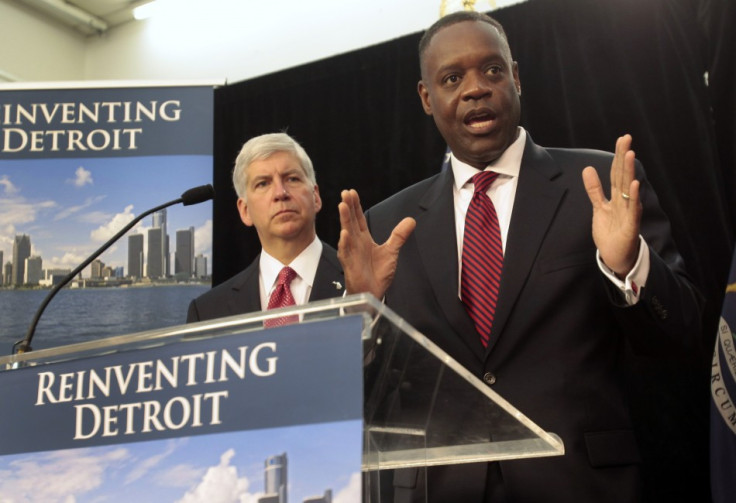US Court To Determine Detroit's Eligibility For Bankruptcy Protection

A US court is expected to announce the date for Detroit's bankruptcy trial when it convenes today.
US Bankruptcy Judge Steven Rhodes is expected to announce a schedule for the bankruptcy proceedings, and address the appointment of a federal judge as mediator.
Rhodes could also set a briefing and discovery timeframe as requested by bond insurer Syncora Guarantee, which is challenging Detroit's plan to terminate interest rate swap agreements at discounted rates. The city hopes to save $70m by terminating the contracts.
Detroit's creditors have until 19 August to file their objections to the city's ability to remain in bankruptcy court. That deadline and others Rhodes has proposed will be discussed on Friday, the second of many hearings expected over the coming months.
Earlier this week, Rhodes earmarked 23 October for the start of a trial to hear potential objections to Detroit's eligibility for Chapter 9 bankruptcy protection. Detroit must prove it is insolvent and that it has sincerely attempted to negotiate with its creditors; or that negotiations were not viable owing to a large number of creditors.
If the court does conclude that the city qualifies for bankruptcy, Detroit would have until March 1, 2014 to file a reorganisation plan, according to Judge Rhodes' schedule.
The deadlines, however, are not set in stone. "If people don't agree and become contentious it takes longer," Jim Spiotto, a municipal bankruptcy expert at law firm Chapman and Cutler in Chicago, told Reuters.
Detroit Emergency Manager Kevyn Orr hopes to pull the city out of insolvency by September 2014.
Detroit has become the largest city in US history to file for municipal bankruptcy. The city, once America's automotive powerhouse, owes $18.5bn (£12.1bn, €14.1bn) to thousands of creditors.
It follows three California cities, Stockton, Mammoth Lakes and San Bernardino, all of which filed for bankruptcy in 2012. In 2011, the city of Harrisburg in Pennsylvania tried to file for bankruptcy but the move was turned down because it was deemed illegal.
The timeframes proposed by Orr and Rhodes would see Detroit moving through bankruptcy court more quickly than Stockton, which took about a year to pass through the eligibility phase alone. Stockton listed debts of around $1bn when it filed for bankruptcy protection in June 2012.
© Copyright IBTimes 2024. All rights reserved.






